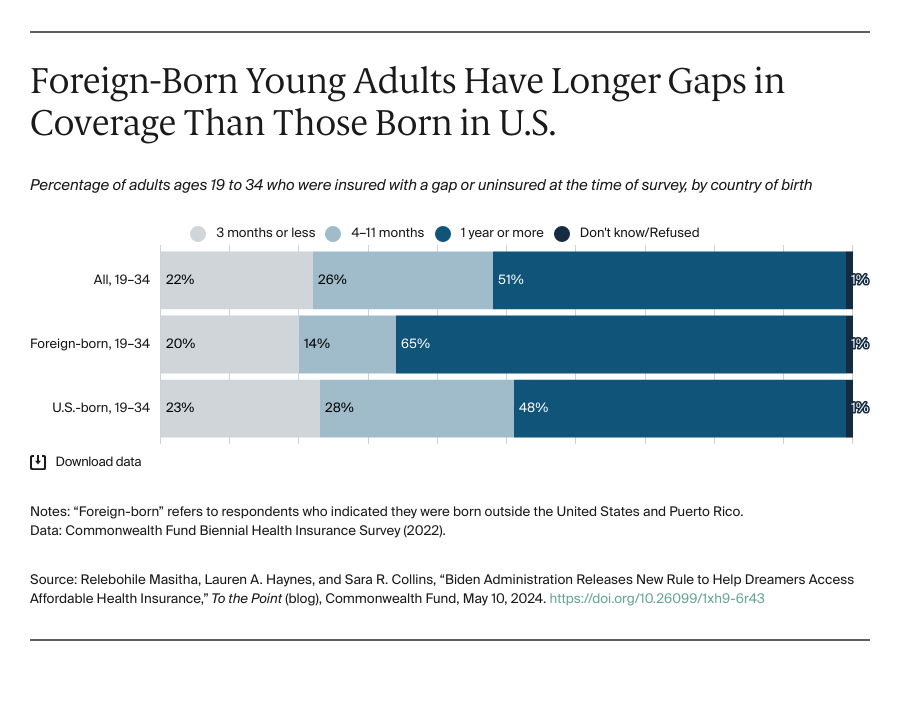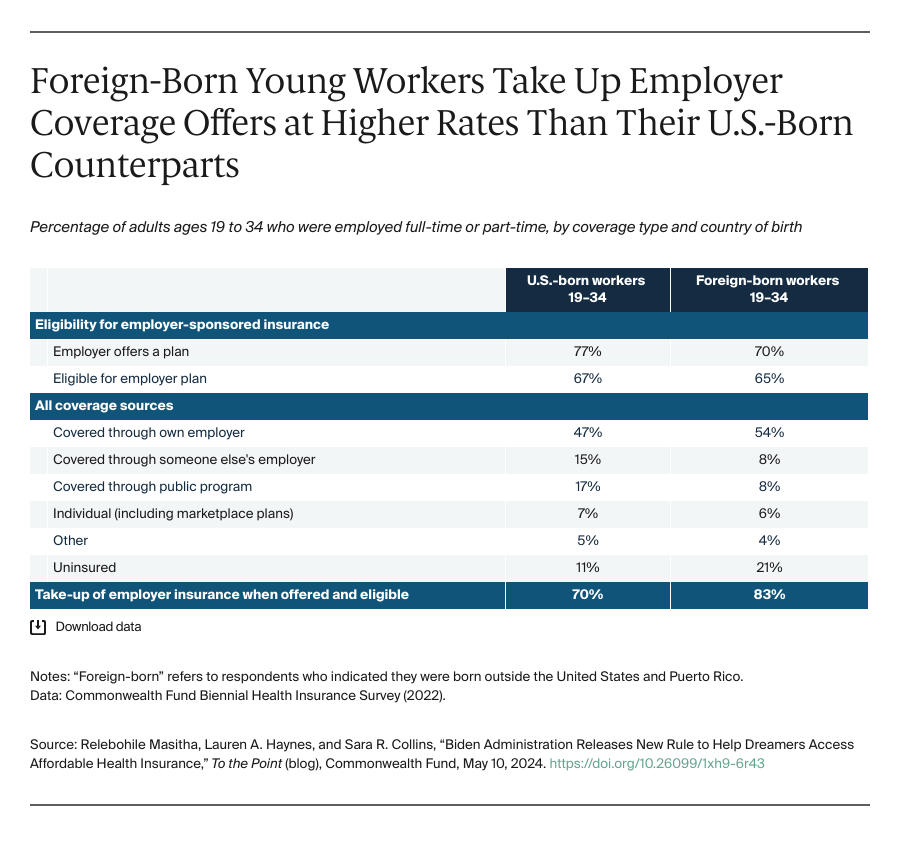Last week, the Biden administration issued a final rule that will dramatically improve health insurance coverage for young adult “Dreamers” — that is, people who came to the United States as children and are protected against deportation by the Deferred Action for Childhood Arrivals (DACA) program. Dreamers can work in the U.S. but lack legal residency status or a pathway to citizenship. As a result, they have been ineligible for publicly funded health insurance coverage. Of the 580,000 active DACA recipients, more than a quarter lack health insurance coverage; most who do have coverage get it through their employers.
The final rule amends the definition of “lawfully present” immigrants to allow DACA recipients to be eligible for insurance coverage through the Affordable Care Act (ACA) marketplaces and the Basic Health Program (BHP), a coverage option for low-income people in Minnesota, New York, and Oregon (as of July 2024). The rule will go into effect in November 2024 and enables DACA recipients to apply for the 2025 marketplace open-enrollment period. The Centers for Medicare and Medicaid Services (CMS) projects that about 100,000 previously uninsured Dreamers will gain coverage next year as a result.
This is an important step forward for immigrant health. Using data from the 2022 Commonwealth Fund Biennial Health Insurance Survey, we examine why this new pathway to coverage is so important for Dreamers and why efforts to extend immigrant coverage should remain a policy priority.








